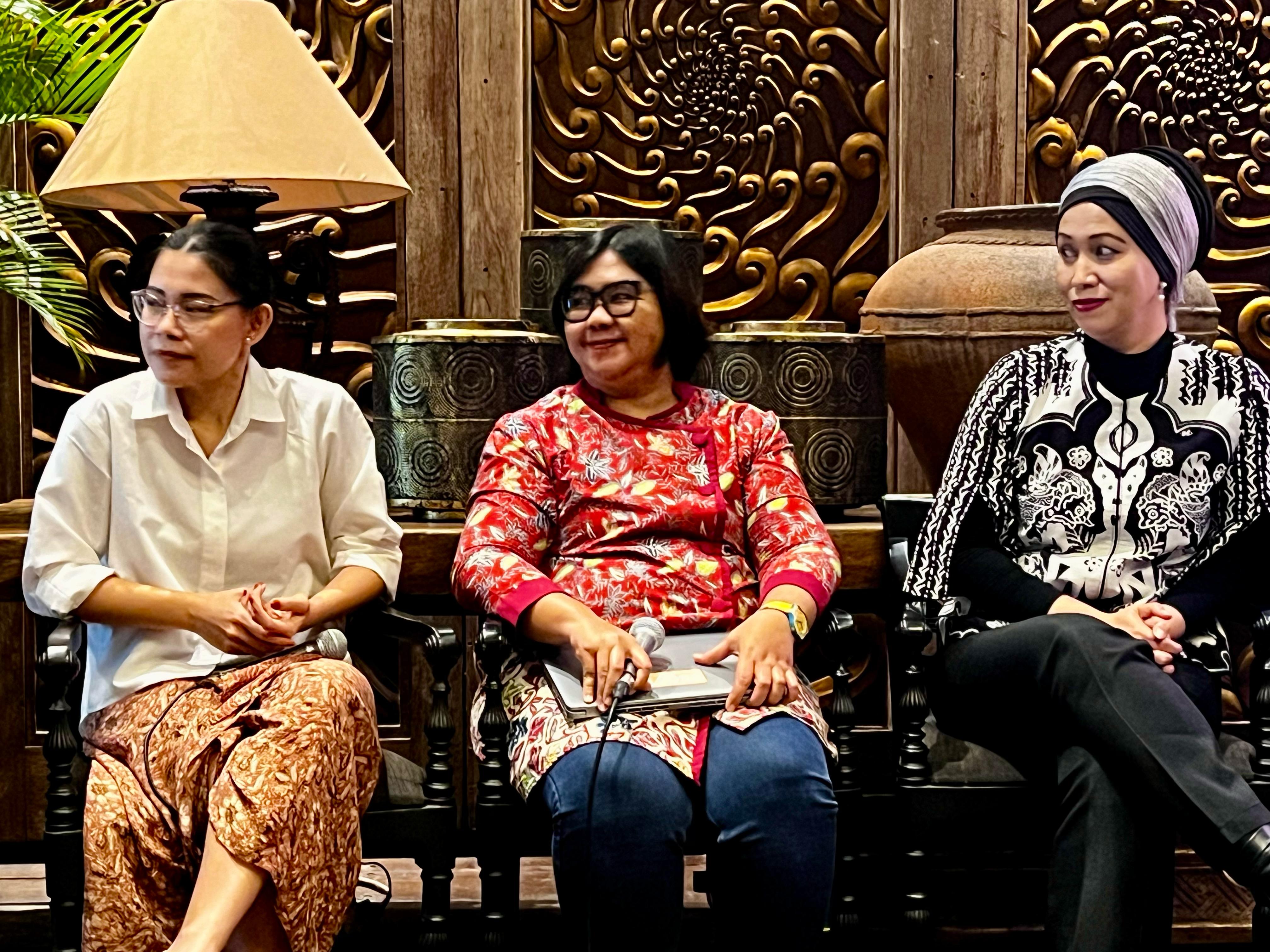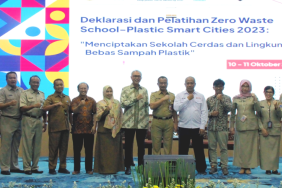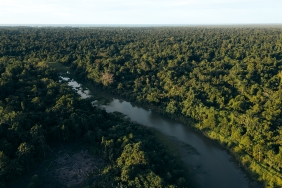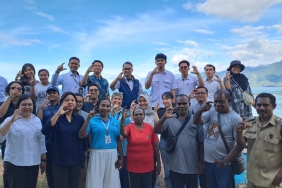PROGRESS OF THE CLIMATE SOLUTIONS PARTNERSHIP PROGRAM, A MULTI-STAKEHOLDER COLLABORATION TO ACCELERATE THE ENERGY TRANSITION IN INDONESIA
Jakarta, February 29, 2024 - PT Bank HSBC Indonesia ("HSBC Indonesia") together with World Resources Institute (WRI) Indonesia and WWF Indonesia provide an update on the Climate Solutions Partnership ("CSP") program in Indonesia. The initiative is a comprehensive five-year program of the HSBC Group launched in 2021. It aims to accelerate the adoption of renewable energy mobilize private sector investment, and support the transition to clean energy in Indonesia, with a focus on the commercial and industrial sectors[1].
Entering the third year of the program, the three parties jointly presented the achievements of the CSP program in a media gathering entitled "The Climate Solutions Partnership (CSP): Scaling Climate Solutions by Combining Financial Strength and Expertise in Sustainability."
The event featured speakers from HSBC Indonesia namely: Francois de Maricourt, President Director of HSBC Indonesia, and Nuni Sutyoko, Head of Corporate Sustainability. Meanwhile, WRI Indonesia was represented by Clorinda Wibowo, Senior Manager of Energy and Sustainable Business. Representing WWF Indonesia was Dewi Lestari Yani Rizki, Chief Conservation Officer at WWF Indonesia he added.
The need for green energy sources at both the global and national levels is growing. At the global level, there is an initiative called RE100 which is a commitment from 400 companies, of which 96 are from Indonesia, to achieve 100% renewable electricity in their operational areas. Responding to the high demand for green electricity, the CSP Program is supporting a leading Indonesian utility company in developing a green electricity product called Green Energy as A Service (GEAS) since 2023.
Clorinda Wibowo, Senior Manager of Energy and Sustainable Business at WRI Indonesia, said "The CSP program encourages collaboration between industries, their supply chains, and policymakers to jointly accelerate the energy transition. In addition to GEAS, for example, we are also working to accelerate the use of environmentally friendly alternative fuels, namely biomass waste. Work
in collaboration with a supply chain partner of a major apparel manufacturer, our CSP Program has successfully conducted a pilot test of boiler conversion from coal to biomass waste. However, the use of biomass waste still requires further examination. Recognizing this, we are providing inputs to relevant policies and collaborating with the Directorate of Bioenergy at the Ministry of Energy and Mineral Resources, as well as analyzing guidelines for the use of biomass for industry that contain technical aspects, analysis of raw material availability, and financial and investment options for the use of alternative heat power (heat) such as sustainable biomass."
Furthermore, the CSP program also sees a great opportunity to accelerate an equitable energy transition through energy efficiency. Although it is seen as an easy thing to do there are still many parties who think that energy efficiency does not provide a return that is worth the effort and cost. In fact, for example, the hospitality and retail sectors could very well use energy efficiency measures to support their net-zero targets. As these sectors grow, so does the energy demand. What we need to do is to manage the energy consumption to reduce the energy consumption rate. This is what the CSP program does for these two sectors to reduce greenhouse gas emissions through energy efficiency as the main solution.
Indonesia seems to face a dilemma when it must ensure the development of renewable energy projects without disturbing the biodiversity of an area - and in many situations, the two intersect. Therefore, both must be addressed in a balanced way between accelerating the renewable energy transition and maintaining biodiversity. If these risks are properly addressed, it will spur private sector investment, which is still very low.
Seeing that accelerating the transition requires a comprehensive approach, the support of the financial services sector in providing various financing schemes will help the industrial sector move towards the necessary transition. That is why the CSP program brings together lessons learned to serve as a model for the transition plans of actors within the industry.
-FINISHED-
[1] References https://www.about.hsbc.co.id/-/media/indonesia/en/news-and-media/210817-energy-transition-press-
Ariavita Purnamasari Head of Communications & Corp. Sustainability ariavita.purnamasari@hsbc.co.id
About HSBC Holdings plc
HSBC Holdings plc is the parent company of HSBC and is based in London. HSBC serves customers around the world through offices in 62 countries and territories. With assets of more than USD3,039 billion as of December 31, 2023, HSBC is one of the largest banks and financial services companies in the world.
HSBC Holdings plc is the parent company of HSBC Holdings plc and is based in London.
About PT Bank HSBC Indonesia
PT Bank HSBC Indonesia has been operating in Indonesia since 1884 and currently serves customers throughout Indonesia. PT Bank HSBC Indonesia is a member of the HSBC Group offering Commercial Banking and Global Banking services for Corporate and Institutional customers, Global Markets for Treasury and Capital Markets management as well as Wealth and Individual Banking.
PT Bank HSBC Indonesia has been operating in Indonesia since 1884 and currently serves customers across Indonesia.
PT Bank HSBC Indonesia is licensed and supervised by the Financial Authority of the Republic of Indonesia. PT Bank HSBC Indonesia is a member of the Indonesian Deposit Insurance Corporation.
PT Bank HSBC Indonesia is licensed and supervised by the Financial Authority of the Republic of Indonesia.
About WRI Indonesia
WRI Indonesia, established in Indonesia under the name Yayasan Institut Daya Dunia, is an independent research organization dedicated to contributing to the inclusive and sustainable socio-economic development of Indonesia. Our work is focused on five portfolios: forests, climate, energy, cities and transportation, and oceans. We turn big ideas into action at the nexus of environment, economic opportunity, and human well-being.
For more information, please click https://wri-indonesia.org/en





